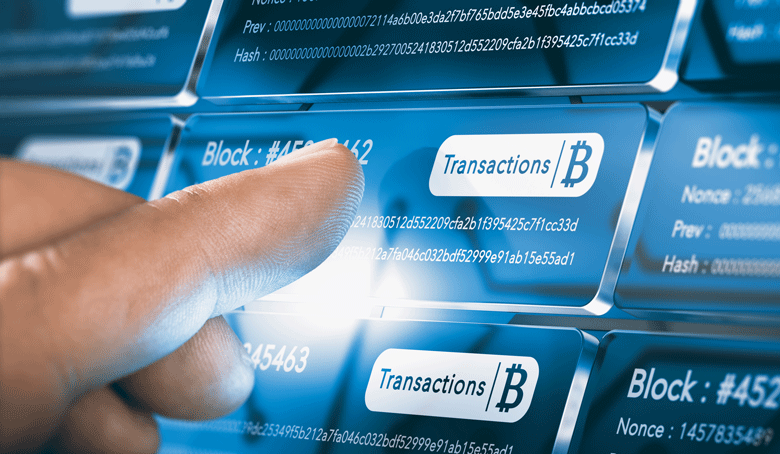

 In 2008, as the world was dealing with a financial crisis, Satoshi Nakamoto created bitcoin, a decentralised and independent digital currency beyond the reach of any government or central bank. Bitcoin was the result of a decades-long quest by a group of technology geniuses to develop an anonymous, stateless currency.
In 2008, as the world was dealing with a financial crisis, Satoshi Nakamoto created bitcoin, a decentralised and independent digital currency beyond the reach of any government or central bank. Bitcoin was the result of a decades-long quest by a group of technology geniuses to develop an anonymous, stateless currency.
To create a viable digital currency, Satoshi Nakamoto built a double-blind, distributed and indelible ledger with a cryptographic incentive system for regulating trusted transactions between anonymous parties. The technology was called blockchain.
Gaining acceptance
Since those early days, blockchain has evolved from fringe to mainstream. Today, there are more than 2,000 active blockchain-enabled cryptocurrencies traded on more than 200 blockchain exchanges, with a total market cap of more than $200bn.
US stock exchange, the Nasdaq, is considering opening its own cryptocurrency exchange. The global financial services industry spends $1.7bn a year on blockchain. Governments are not far behind, expanding from 117 blockchain initiatives in 25 countries in 2016, to 202 initiatives in 45 countries last year.
UAE ecosystem
The UAE government aims to emerge as a global leader in the adoption of blockchain technology by 2021. Government-backed initiatives, including the Dubai Future Accelerators, Dubai 10X and the Dubai Blockchain Challenge, are recruiting international blockchain startups to apply the technology to government challenges.
The Dubai government intends to go fully paperless before the end of 2021, a goal that will require an overhaul of technology, legal structures and operating procedures that will be largely powered by blockchain.
To establish a reputation as the global capital for this technology, it must also be embraced by the UAE’s private sector. The government and large private institutions have kickstarted solutions. It is now up to small and medium-sized enterprises (SMEs) to develop their own blockchain-savvy workforces.
Smart approach
Blockchain has the power to transform business interactions within the next 10 years. Applications that use the technology, for example, are governed by smart contracts that codify exchange rules and execute automatically when predefined criteria are met. Smart contracts on blockchain enable multiple stakeholders to work together without a middle-man, and have the potential to do for transactions what websites have done for information.
Managers who remember the radical changes to business operations brought about by the rapid adoption of the internet at the turn of the millennium will understand the shift in skills and mindsets required to leverage the blockchain opportunity. Businesses that are able to navigate this transformation will have access to a $16bn marketplace, and SMEs need to be prepared.
Upskilling for blockchain
One approach is to hire new talent. Demand for blockchain developers soared 6,000 per cent on some recruitment platforms in the past year.
 But hiring specialised developers may be cost-prohibitive for most SMEs. Instead, the focus should be on upskilling existing employees. The Xische Academy offers a leadership masterclass on blockchain, contextualised to the UAE market.
But hiring specialised developers may be cost-prohibitive for most SMEs. Instead, the focus should be on upskilling existing employees. The Xische Academy offers a leadership masterclass on blockchain, contextualised to the UAE market.
Business leaders also need a strong understanding of the technology to avoid falling into vendor traps.
Interoperability is one of the biggest roadblocks to wide-scale adoption of the technology, and while blockchain solution providers promote the platform they are most comfortable with, that does not mean it is the best platform for every organisation.
Factors to consider when evaluating platforms include size, transaction speed, flexibility, language and security.
Decision-makers should also be conscious of the volume of existing sector-specific use cases, as this could signal a coalescence around a particular platform.
Finally, business leaders need to recruit other stakeholders to participate on a blockchain application – uniting various stakeholders to enable a transformative experience.
Opportunities ahead
By investing in upskilling their team and developing their own understanding, business leaders will be able to make informed decisions on blockchain strategy. This will enable their organisation to experiment and learn while improving their value propositions to deliver frictionless customer experiences.
Businesses in the UAE have an advantage. While other markets have been slow to adopt the technology, the UAE government has taken steps to promote blockchain use.
Initiatives by the Abu Dhabi Global Market and the Dubai International Financial Centre to ease market entry for blockchain startups through regulatory sandboxes have demonstrated the government’s interest in recruiting global-calibre blockchain talent and kickstarting a knowledge-sharing ecosystem.
These convergences have created an unmatched opportunity for private businesses in all industries to push the development of blockchain technology and to contribute to establishing the UAE’s reputation as a global leader in blockchain.
|
You might also like...

Iraq signs deal to develop the Akkas gas field
25 April 2024

Emaar appoints beachfront project contractor
25 April 2024

Acwa Power signs $356m Barka extension
25 April 2024

AD Ports secures Angola port concession agreement
25 April 2024
A MEED Subscription...
Subscribe or upgrade your current MEED.com package to support your strategic planning with the MENA region’s best source of business information. Proceed to our online shop below to find out more about the features in each package.









